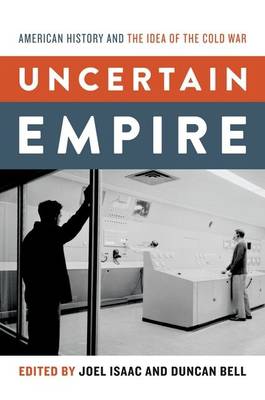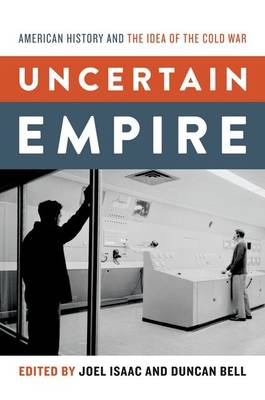
- Afhalen na 1 uur in een winkel met voorraad
- Gratis thuislevering in België vanaf € 30
- Ruim aanbod met 7 miljoen producten
- Afhalen na 1 uur in een winkel met voorraad
- Gratis thuislevering in België vanaf € 30
- Ruim aanbod met 7 miljoen producten
Zoeken
€ 164,45
+ 328 punten
Omschrijving
Historians have long understood that the notion of "the cold war" is richly metaphorical, if not paradoxical. The conflict between the United States and the Soviet Union was a war that fell ambiguously short of war, an armed truce that produced considerable bloodshed. Yet scholars in the rapidly expanding field of Cold War studies have seldom paused to consider the conceptual and chronological foundations of the idea of the Cold War itself. In Uncertain Empire, a group of leading scholars takes up the challenge of making sense of the idea of the Cold War and its application to the writing of American history. They interrogate the concept from a wide range of disciplinary vantage points--diplomatic history, the history of science, literary criticism, cultural history, and the history of religion--highlighting the diversity of methods and approaches in contemporary Cold War studies. Animating the volume as a whole is a question about the extent to which the Cold War was an American
invention. Uncertain Empire brings debates over national, global, and transnational history into focus and offers students of the Cold War a new framework for considering recent developments in the field.
invention. Uncertain Empire brings debates over national, global, and transnational history into focus and offers students of the Cold War a new framework for considering recent developments in the field.
Alleen bij Standaard Boekhandel
+ 328 punten op je klantenkaart van Standaard Boekhandel
Beoordelingen
We publiceren alleen reviews die voldoen aan de voorwaarden voor reviews. Bekijk onze voorwaarden voor reviews.












